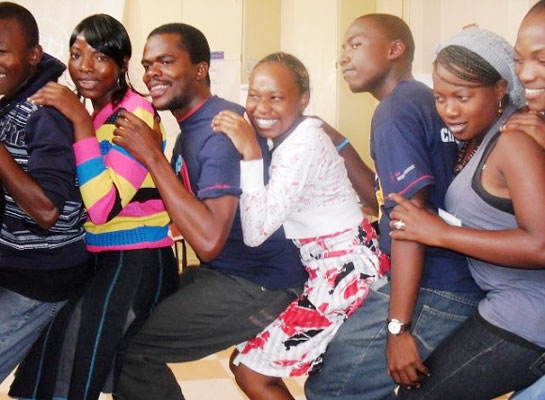
with youth in mind:by YETT
Countries worldwide have been going into lockdowns to minimise the blowout of this fast-spreading lethal virus known as Covid-19 or coronavirus that has left the world on its knees and facing an uncertain future.
President Emmerson Mnangagwa on March 27 announced a 21-day national lockdown, which commenced on March 30. The lockdown was further extended to May 3. The announcement of the lockdown was received with mixed reaction from citizens, including young people. At day two of the lockdown, some young people were already finding it difficult to stay at home, others were complaining about not having running water and electricity. Some had no data to watch their favourite movies or be on social media platforms like Twitter, Facebook and Instagram.
There is no denying that this global pandemic has disrupted people’s everyday lives, including that of young people with serious implications on their lives. The country’s healthcare system, which is already in the doldrums, has been overstretched.
Educational institutions from primary, secondary to tertiary levels have been forced to close.
Some of the students, especially in tertiary institutions, have resorted to online or e-learning. Such measures are commendable, but what about a young person who comes from a poor family or marginalised areas who cannot afford to buy data or access the internet? What will happen to the future of his/her studies?
“As a medical student, the outbreak of the coronavirus and the lockdown has really set us back in a very significant way. We had to close the medical school for safety reasons and now have a lot of rotation, we will have to cover for the lost time. A year might be added to our programme and it is a very huge problem because there is already a backlog in the UZ medical school,” said a medical student from the University of Zimbabwe.
She went on to highlight that learning was ongoing via online classes, but e-learning was proving to be a challenge as most students do not have access to the internet at home.
- Chamisa under fire over US$120K donation
- Mavhunga puts DeMbare into Chibuku quarterfinals
- Pension funds bet on Cabora Bassa oilfields
- Councils defy govt fire tender directive
Keep Reading
“This is a time and opportunity for the government to change the way of doing things in the academic arena. More technology- friendly methods of education delivery should be employed in the education system,” the medical student added.
For some students in tertiary institutions staying at home with their parents and guardians has not been an easy, as they were used to enjoying their freedom, with no curfew and other restrictions.
“Staying with my parents for these first seven days of the lockdown has been hell for me. I cannot imagine spending the next 14 days under the same roof with them. I have become their house cleaner. I just wish and pray that this Covid-19 madness will come to an end, so that I can go back to school and enjoy my freedom,” said a female student.
This brings an interesting dynamic to gender roles in households and how young women are facing various barriers to focus on their studies.
For some young people, the lockdown has given them time to read widely and extensively.
“I was hearing from friends about the Constitutional Amendment Number 2 Bill and its implications on young people. However, I took it upon myself during this lockdown to go through this Bill, clause by clause and noting the key points or issues that will affect us as young people like the proposed introduction of 10 youth seats in Parliament. I have been sharing with my friends this important information about this Bill using different social media platforms,” said Tafirei Takaedza from Gweru.
“I know that the public hearings for this Bill were put on hold because of the outbreak of coronavirus, but as soon as the new dates are announced, I am going to attend and give my input.”
Young people’s livelihoods and sources of income have not been spared in this crisis, as it poses enormous challenges to the highly informalised economy where most citizens make a living through selling anything and everything on the streets pavements in the city centre and in the dusty streets in high-density suburbs.
The International Monetary Fund 2019 report states that, Zimbabwe has the world’s second largest informal economy after Bolivia. The lockdown may have now entered its fifth week in Zimbabwe, but the majority of young people are frustrated. They are already struggling to make ends meet and to fend for their families, so it appears as if the stress of the lock-down is overtaking the stress of the virus.
Some young people from Bulawayo in the informal sector highlighted that the lockdown was a retrogressive order that could leave them in a poorer state as they survive from hand-to-mouth.
“The lockdown has really hurt us, I sell vegetables and my business depends on the numbers of people who come to buy every day. I need to be in the streets so that I do not go hungry, I do not even know how I am going to survive in the remaining days of the lockdown and the future is uncertain as we do not even know what will happen after 35 days of this lockdown,” said Sithembiso Dube from Magwegwe North.
l For feedback please send to [email protected]











